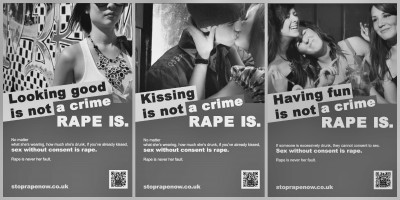Since the 16 Days of Activism Against Gender-Based Violence started on the 25th of November, any activity by the authorities for the prevention of any kind of violence against women is even more interesting and important. Especially since in recent years these topics received somewhat politically charged attention in Hungary due to the fact that some Hungarian politicians were involved in matters like domestic abuse or with their communication they trivialized or blamed these actions on the victims. Hungary is in the international spotlight again for victim-blaming, even the Guardian, the Reuters and some news portal in India have written about the new safety video issued by law enforcement.
The controversial preventive videos were released by the police force of Pécs just 4 days before the activist movement kicked off. The videos contain, however, a multitude of errors and misconceptions. First of all, the slogan can be misunderstood in the worst possible way: “Tehetsz róla/Tehetsz ellene” can be understood as the Hungarian equivalent of „It’s your fault/You can do something against it.”. The other possible interpretation of the message is more kind as it sounds like “You can do something about it/You can do something against it”. It is still an unfortunately phrased message since it sounds like victim-blaming. Pécs received some notoriety from other sources, since in the recent years a police psychologist was raped and killed and the daughter of the mayor was raped and severely beaten. The cherry on top is the fact that it is coming from the police, to whom the people suffering any kind of abuse would need to report their issues for protection and justice.
Apart from the badly phrased slogan, the underlying message where alcohol consumption and clothing deemed „inappropiate” by the makers of the video are some sort of invitation for rape is just as unfortunate and wrong. The concept behind the video doesn’t seem to be an isolated incident, since another police station in Vas county released a communique’ with a similar message. They said that in some cases the flirty behavior of the females can lead to the rape by angering the males with no follow through. The fact that they attribute the cause of rape to the behavior or way of dressing of the victims is preposterous. It shows how widespread these misconceptions are, and even more alarming is that they are voiced by law enforcement and defended by the interior ministry. That the ministry responsible for and entrusted with defending the citizens of Hungary would approve such a message shows how far up these distorted views spread.
All in all the only thing these videos could achieve is bring down even further the number of cases where people are actually willing to approach the police for help. Particularly with rape and abuse, when often the victims reporting the crime are faced with judgment from the very beginning. With these facts in mind, no wonder that only 1 in 100 victims are brave enough to go through with reporting the rape. Especially if the officer receiving the report is waiting for them with a checklist about the amount of skin shown and their blood alcohol level.
These videos fail their aims as well as disappoint their audiences. They make the victims feel ashamed of themselves as it presents them as the ones responsible for such a situation, since they dressed and acted the way they did. They also misrepresent the victims, since young “inappropriately” dressed women are not the typical targets of rape. In fact most of the cases of rape are committed by acqauintances or relatives and in a private setting. This video and other sources in which victim-blaming is communicated is harmful in these cases as well. In cases where children are the victims and they see similar videos, it could leave an imprint in their psyche for their entire lives, suggesting that what had happened is actually their fault.
The videos do not actually fight for less violence and do nothing to prevent it. Instead of tackling the roots of the problem they attempt to eliminate the victim from the equation by saying: stay at home, don’t drink, don’t have fun.
However, to end with a somewhat positive note, more and more organisations are working in this area and looking for opportunities to cooperate. There is a widespread opposition to the videos and a slut walk was organised on 30th November. Hopefully, similarly to the case of the internet tax, the government seeing the opposition of society will admit that the current situation is unacceptable and will change its attitude towards gender based, sexual and domestic violence.




